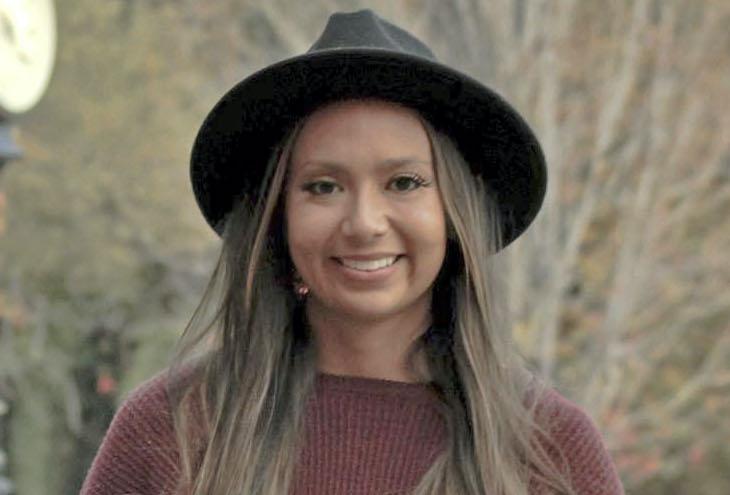Mdison Whitekiller became a “nurse” at the age of 10. Her mother had been diagnosed with breast cancer, and Whitekiller took care of her as best she could. Looking back, Whitekiller believes this experience greatly influenced her desire to pursue medicine. Now, as she starts medical school at the University of Oklahoma–Tulsa School of Community Medicine, she is well on her way to becoming a doctor and helping not only her mother but the larger Native community.
Growing up on the Cherokee Nation Reservation in Oklahoma, Whitekiller says her earliest memories are of rural areas, surrounded by trees, animals, and plants. She spent many happy days outside with her grandpa Todd. Even when her mom got a job at one of the casinos in Tulsa, they still lived about 20 minutes outside the city, so Whitekiller could grow up in a small community.
That small town was Verdigris, Okla. The community is so small that there were fewer than 70 students in Whitekiller’s high school class. Her mother supported Whitekiller’s college goals. “My mom has always encouraged me to go after all my dreams,” she says.
Whitekiller was excited to pursue her education at Northeastern State University (NSU), but found the transition to university life difficult. “I struggled with homesickness,” she recalls. “The first year was the worst. I would drive home every weekend and even in the middle of the week just to spend the night and head back the next morning for class.”
Whitekiller knew she wanted more from her college experience, so she started to forge connections with her school community. “Once I became more involved on campus, I was much happier and felt that I had the motivation I needed to succeed,” explains Whitekiller. Finding a community that supported her, and understood the needs of Indigenous students, was key to her success.
During her time at NSU, Whitekiller found that community in AISES as well as the Native American Student Association. She helped plan the Miss Native American NSU pageant and was a student-athlete. “I was on the NSU cheer team all four years and even came back as an assistant coach for a short time,” says Whitekiller. “These organizations were absolutely necessary to my success on campus.”
Once Whitekiller began to feel part of the campus community, her goals and dreams became clearer. While Whitekiller loved chemistry in high school, she initially chose to major in education. “I was unsure if I would be capable of excelling in a science degree,” she explains. Then she decided not to let her doubts stop her. “I have always been interested in functional systems of the human body,” she says, “so biochemistry made the most sense.”
Whitekiller threw herself into her studies, including research opportunities outside the classroom. “I gained a lot of confidence in my abilities by working in the lab,” she says. In 2021, she had the opportunity to participate in the Native American Research Internship, where she worked full time in a medical research lab in Salt Lake City. “I was able to shadow physicians,” explains Whitekiller. “Walking into that first appointment gave me the feeling of belonging. I knew this is exactly what I want to do for the rest of my life.”
With a clear goal of going to medical school, Whitekiller leaned on her mentor, Dr. Cammi Valdez. “Seeing a woman of color excel in the scientific community was an incredible inspiration in my life,” says Whitekiller. It also gave her the confidence to pursue medicine.
Now as a beginning medical school student, Whitekiller is excited to move closer to her goal of one day working in an Indian Health Service hospital or clinic. “I hope to be the advocate that Indigenous people need to ensure that they are maintaining their health and wellness and can be strong leaders for their tribe,” she explains.
As Whitekiller looks back on how far she has come, she knows her journey will continue to evolve. “I struggled with imposter syndrome, and didn’t feel like I was smart enough to be in the classes I had,” says Whitekiller. She hopes her story will help others believe in themselves. Says Whitekiller, “Believe that you are worthy of being in spaces that weren’t always made for you. Through hard work and perseverance, your wildest dreams are possible.”












